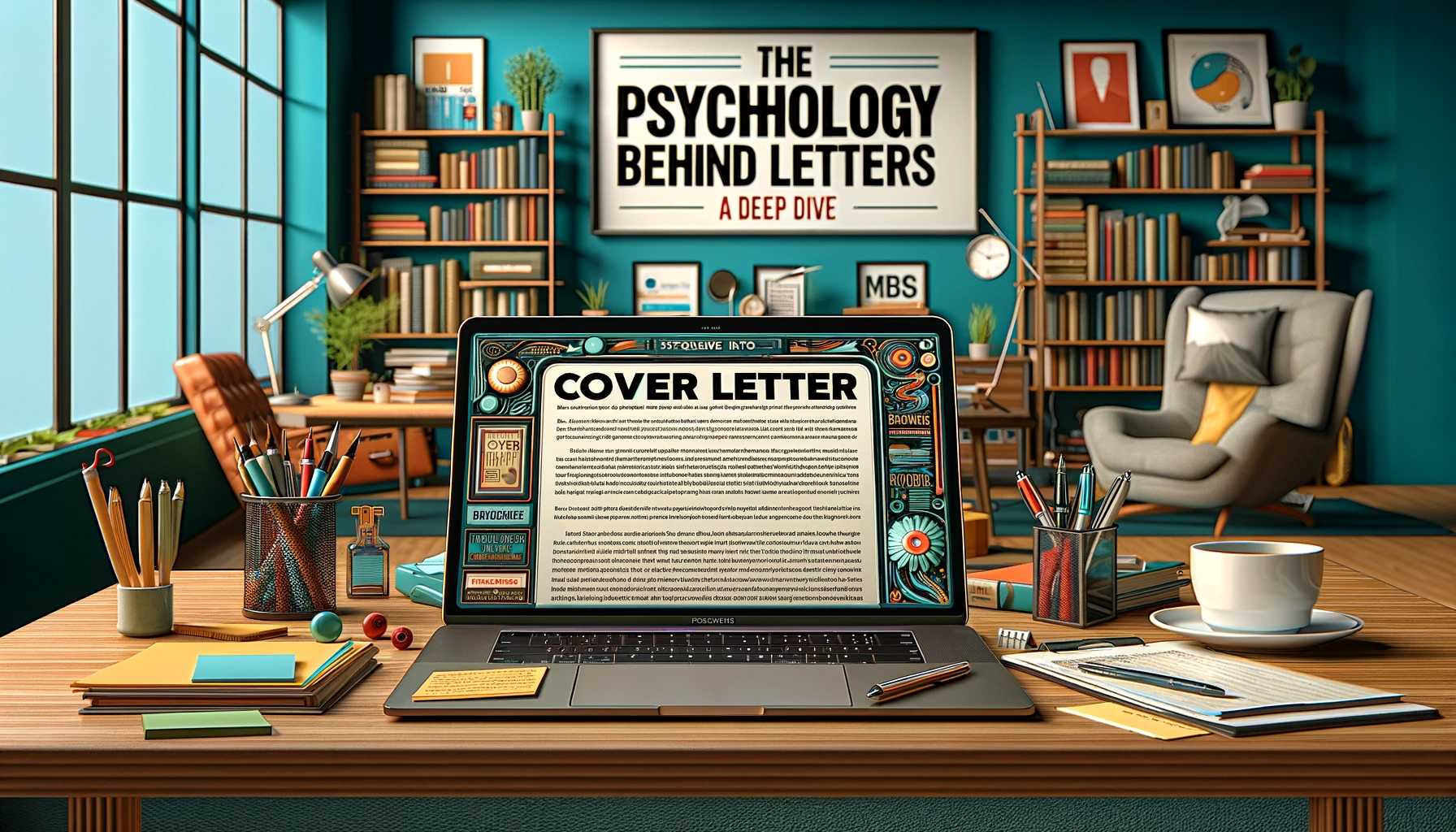The Psychology Behind Cover Letters: A Deep Dive
Cover letters – those brief but potent documents that accompany resumes in job applications – carry more weight than you might think. They're not just a formality; they're a window into your personality, your motivations, and your fit for the role. In this blog post, we'll explore the fascinating psychology behind cover letters and how understanding it can help you craft a compelling one that captures the attention of hiring managers.
The Power of First Impressions
As the saying goes, you never get a second chance to make a first impression. This rings especially true in the world of job applications. Studies have shown that recruiters often form an impression of a candidate within the first few seconds of reading their application materials. And guess what? The cover letter is typically the first thing they see.
This means that your cover letter has the power to set the tone for the rest of your application. It's your opportunity to make a positive first impression and pique the recruiter's interest in learning more about you.
Crafting Your Personal Brand
In today's competitive job market, it's not enough to simply list your qualifications and experiences on a piece of paper. You need to stand out. And one way to do that is by crafting a strong personal brand through your cover letter.
Your cover letter is your chance to tell your story – to showcase not just what you've done, but who you are as a person. Are you passionate about your field? Do you have a unique perspective or approach? What drives you to succeed?
By infusing your cover letter with your personality and values, you create a more memorable and authentic impression on the recruiter. After all, people don't just hire qualifications; they hire people.
The Principle of Reciprocity
Ever heard of the principle of reciprocity? It's a psychological phenomenon that suggests that when someone does something nice for us, we feel compelled to return the favor.
How does this relate to cover letters? Well, think of your cover letter as your opportunity to do something nice for the recruiter – to capture their attention, make their job easier, and leave a positive impression. In return, they may be more inclined to give your application a closer look and consider you for the role.
Appealing to Emotions
While it's essential to highlight your skills and qualifications in your cover letter, don't forget about the power of emotions. Research has shown that emotions play a significant role in decision-making, including hiring decisions.
So, how can you appeal to emotions in your cover letter? Share stories that evoke feelings of excitement, passion, or empathy. Talk about why you're passionate about the work you do, or share a personal anecdote that demonstrates your dedication or perseverance. By tapping into emotions, you create a more compelling and memorable experience for the recruiter.
Building Rapport and Connection
At its core, the job search process is about building relationships – with recruiters, hiring managers, and potential colleagues. And your cover letter is your first opportunity to start building that rapport and connection.
How can you foster a sense of connection through your cover letter? Start by doing your research and personalizing your letter to the company and the role. Show that you understand their needs and challenges and explain how you can help address them. By demonstrating that you've taken the time to understand the company and its culture, you show that you're genuinely interested in the opportunity.
Overcoming Negative Biases
Let's face it – we all have biases. And recruiters are no exception. They may have preconceived notions or biases based on factors like your name, education, or previous experience.
So, how can you use your cover letter to overcome these negative biases? Focus on what sets you apart – your unique skills, experiences, and perspectives. Use your cover letter as an opportunity to challenge stereotypes and showcase your value as a candidate. By emphasizing your strengths and contributions, you can help recruiters see past their biases and focus on what truly matters – your potential to excel in the role.
Conclusion: Mastering the Art of Persuasion
In the world of job applications, the cover letter is your secret weapon – a powerful tool for persuasion and connection. By understanding the psychology behind cover letters and applying that knowledge to your own writing, you can create a compelling and persuasive document that sets you apart from the competition.
So, the next time you sit down to craft a cover letter, remember the power of first impressions, the importance of personal branding, and the principles of reciprocity and emotional appeal. By leveraging these psychological insights, you can create a cover letter that not only captures the attention of recruiters but leaves a lasting impression that sets you on the path to success.









